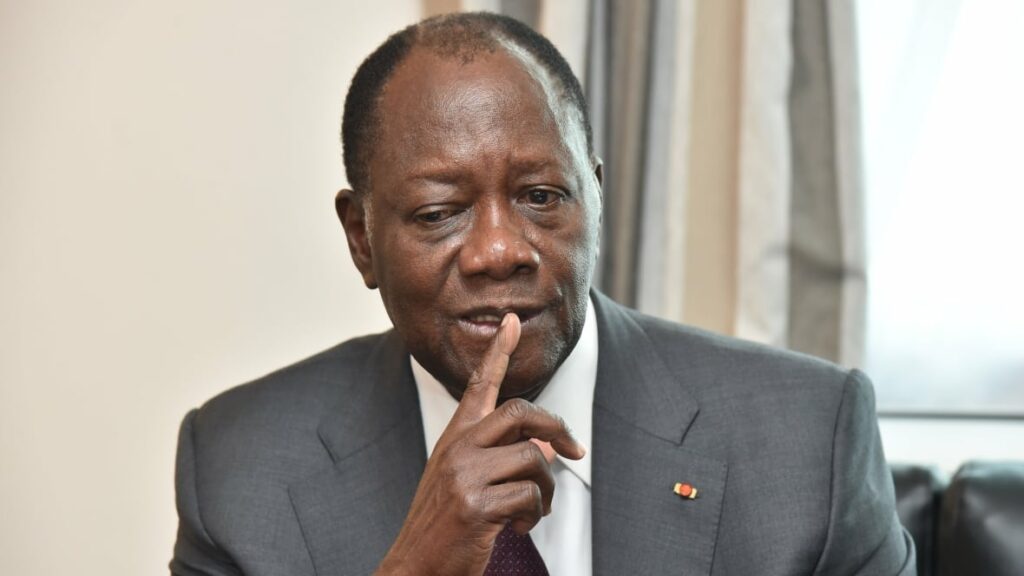Ivory Coast: Ouattara, a new candidacy and invisible opponents Between international silence and domestic resignation, a democracy under control.
The unofficial announcement of President Alassane Ouattara’s new candidacy for the 2025 presidential election has reignited the debate on political longevity in West Africa. At 83, the Ivorian head of state appears ready to run for a fourth term, in a political climate marked by the weakening of the opposition and the normalization of power.
Since the controversial 2020 presidential election, when Ouattara’s candidacy had already sparked tensions (with more than 85 deaths in clashes), the opposition has struggled to organize. Henri Konan Bédié has died, Laurent Gbagbo remains marginalized despite his return, and emerging figures lack popular support and institutional backing. “The political space is locked down, protest is turning into resignation,” says a political analyst based in Abidjan.
Strategic silence from Western partners
France, a traditional partner, is taking a cautious stance, preferring stability to democratic uncertainty. Paris is focusing on security and economic cooperation (with more than €3.5 billion in bilateral trade in 2023), while avoiding direct criticism. The European Union has not issued any official statement, despite warnings from NGOs about the risks of authoritarian drift. The United States, focused on the Sahel, is adopting a minimalist stance, praising “economic stability” without mentioning political governance.
A variable geometry democracy
This new turning point raises geopolitical questions about the evolution of political models in French-speaking Africa. While pan-Africanist and anti-French rhetoric is becoming more radical in the Sahelian countries, Côte d’Ivoire embodies a form of directed stability, tolerated and even supported by Western partners, despite concerns about political change.
“The risk is that this succession of terms will set a lasting precedent in a region already experiencing institutional tension,” says researcher Véronique Aubert of the Geneva Center for Diplomatic Studies.
Alassane Ouattara’s candidacy could thus reinforce democratic frustrations, fuel populist rhetoric, and accentuate the disenchantment of African youth with the electoral process.



